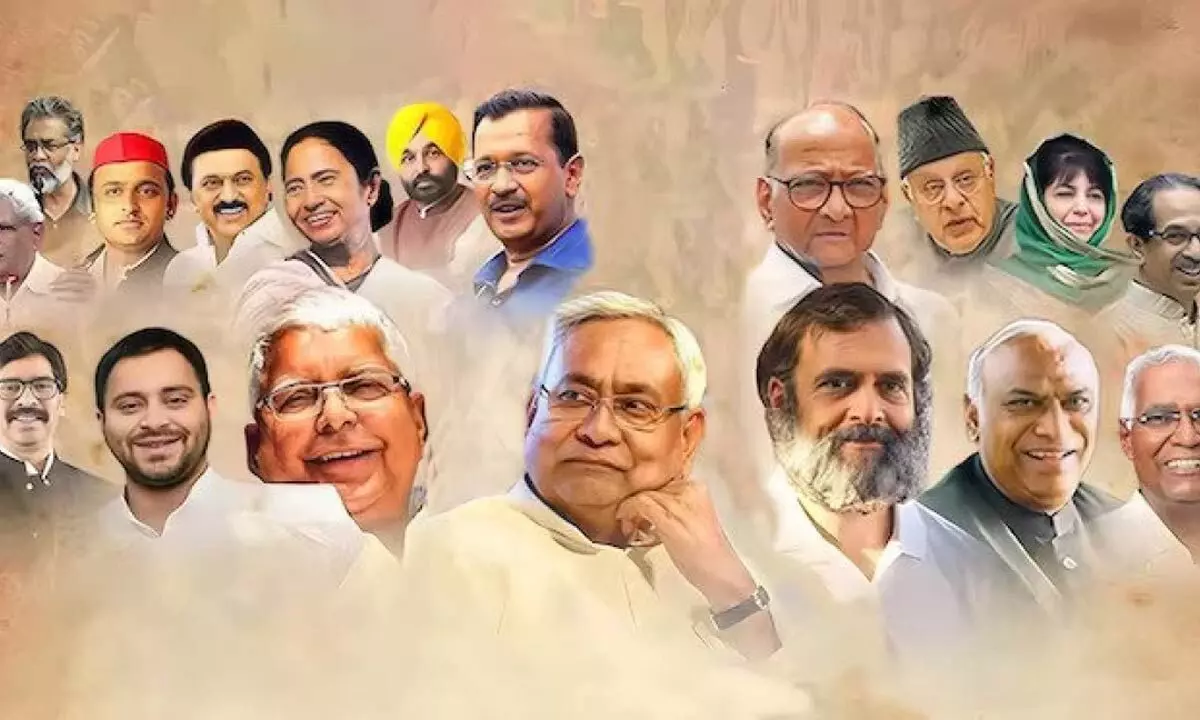Political parties must prioritise national interest over lust for power

Opposition parties in India must take a moment for genuine introspection—not with an inflated sense of self-importance, but with a truly large heart.
West Bengal Riots, Murshidabad Violence, Opposition Silence, Mamata Banerjee, Political Violence, INDIA Bloc must take a moment for genuine introspection—not with an inflated sense of self-importance, but with a truly large heart. They must learn to prioritise national interest over a desperate lust for power, regardless of the cost.
The situation in West Bengal is a stark reminder of the adage, “Nero fiddled while Rome burned.” This saying, which alludes to Emperor Nero’s indifference during the Great Fire of Rome in 64 AD, aptly captures the current state of governance in the state. The West Bengal administration has displayed a shocking level of inefficiency, insensitivity, and ineffectiveness in handling the massive riots that recently broke out in Murshidabad—a Hindu-majority area.
Violence, regardless of the community involved, must be unequivocally condemned. Historically, such incidents have often been politically motivated. While protest is a democratic right, the recent violence appears less about legitimate dissent and more about political provocation.
West Bengal has long been marred by political violence, especially around elections. These recurring incidents raise serious concerns about the integrity of democratic processes, the role of law enforcement, and the growing politicization of institutions. This is not a new phenomenon, but the recent events reflect an alarming escalation.
The seriousness of the situation in West Bengal was underscored by the High Court, which observed that it could not turn a blind eye to what was happening. Yet, it is disheartening to see the ruling Trinamool Congress (TMC) downplay the violence, deflect blame onto the BJP, and cite unrelated incidents like the Manipur unrest.
Chief Minister Mamata Banerjee’s silence is particularly troubling, especially in light of her legislator Bapi Halder’s inflammatory remarks. His threat to “gouge out the eyes” of those supporting the Waqf Act and his assertion that it is their duty to protect Waqf property are not only deeply irresponsible but raise serious concerns about whether the violence had state complicity. This is not the language a lawmaker should use. His duty was to help restore peace, not incite further unrest. Even more shocking is the Congress party’s silence. Known for its constant criticism of the BJP, it has neither reacted to the Murshidabad violence nor appealed for peace or demanded strict action against the culprits. At a recent AICC meeting in Ahmedabad, Rahul Gandhi and other Congress leaders pledged to defend the Constitution. So where are they now? One would have also appreciated it if the AIMIM chief Assaduddin Owaisi had condemned the violence and appealed for peace. When asked, all that he said was that he was not a spokesperson of any West Bengal or any government. On the other hand, he has given a call for protest against Waqf on April 19.
A strong public condemnation of the violence, along with a clear message to the West Bengal government to act, would have gone a long way in showing leadership. Instead, their silence lends weight to the BJP’s criticism that the Congress and its allies in the INDIA bloc are engaging in the politics of appeasement. This silence is not new. When 26/11 conspirator Tahawwur Rana was extradited to India, some opposition leaders were quick to claim credit while simultaneously criticising the NDA government. Instead of standing with the victims of the terror attack, they appeared more sympathetic to Rana. The same indifference is now visible in the aftermath of the Murshidabad riots. There has been no word of condemnation from any INDIA bloc members—including the Congress, Samajwadi Party, Shiv Sena (UBT), or others. This selective outrage raises serious questions about their commitment to justice, national unity, and constitutional values.














